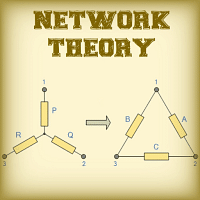Electrical Engineering (EE) Exam > Electrical Engineering (EE) Questions > Intermediate (l) layer of PIN - diode imparts...
Start Learning for Free
Intermediate (l) layer of PIN - diode impartswhich one of the following features to a pnjunction diode ?
- a)High reverse blocking capability
- b)High forward current rating
- c)Inverting capability
- d)Poor turn off performance
Correct answer is option 'A'. Can you explain this answer?
| FREE This question is part of | Download PDF Attempt this Test |
Most Upvoted Answer
Intermediate (l) layer of PIN - diode impartswhich one of the followin...
Understanding the Intermediate (l) Layer of PIN Diodes
The PIN diode structure consists of three layers: p-type, intrinsic (i), and n-type. The intrinsic layer plays a crucial role in enhancing the performance of the diode.
High Reverse Blocking Capability
- The intrinsic layer in a PIN diode significantly increases the reverse blocking capability.
- This layer widens the depletion region when reverse biased, effectively increasing the diode's ability to withstand high reverse voltages without conducting.
- The intrinsic material has a high resistivity, which prevents the flow of charge carriers, thus enabling the diode to block reverse current efficiently.
Comparison with Standard PN Junction Diodes
- Standard PN junction diodes lack the intrinsic layer, limiting their reverse voltage capabilities.
- The absence of the intrinsic layer makes them susceptible to breakdown at lower voltages compared to PIN diodes.
Applications Benefiting from High Reverse Blocking
- The high reverse blocking capability of PIN diodes makes them ideal for high-frequency applications, RF switches, and photodetectors.
- They are also used in optical communication systems where the reverse bias condition is prevalent.
Conclusion
- In summary, the intrinsic layer of a PIN diode imparts high reverse blocking capability, which is critical for various applications in electrical engineering.
- This feature differentiates PIN diodes from standard PN junction diodes, making them preferable in scenarios requiring robust reverse voltage handling.
The PIN diode structure consists of three layers: p-type, intrinsic (i), and n-type. The intrinsic layer plays a crucial role in enhancing the performance of the diode.
High Reverse Blocking Capability
- The intrinsic layer in a PIN diode significantly increases the reverse blocking capability.
- This layer widens the depletion region when reverse biased, effectively increasing the diode's ability to withstand high reverse voltages without conducting.
- The intrinsic material has a high resistivity, which prevents the flow of charge carriers, thus enabling the diode to block reverse current efficiently.
Comparison with Standard PN Junction Diodes
- Standard PN junction diodes lack the intrinsic layer, limiting their reverse voltage capabilities.
- The absence of the intrinsic layer makes them susceptible to breakdown at lower voltages compared to PIN diodes.
Applications Benefiting from High Reverse Blocking
- The high reverse blocking capability of PIN diodes makes them ideal for high-frequency applications, RF switches, and photodetectors.
- They are also used in optical communication systems where the reverse bias condition is prevalent.
Conclusion
- In summary, the intrinsic layer of a PIN diode imparts high reverse blocking capability, which is critical for various applications in electrical engineering.
- This feature differentiates PIN diodes from standard PN junction diodes, making them preferable in scenarios requiring robust reverse voltage handling.
Attention Electrical Engineering (EE) Students!
To make sure you are not studying endlessly, EduRev has designed Electrical Engineering (EE) study material, with Structured Courses, Videos, & Test Series. Plus get personalized analysis, doubt solving and improvement plans to achieve a great score in Electrical Engineering (EE).

|
Explore Courses for Electrical Engineering (EE) exam
|

|
Intermediate (l) layer of PIN - diode impartswhich one of the following features to a pnjunction diode ?a)High reverse blocking capabilityb)High forward current ratingc)Inverting capabilityd)Poor turn off performanceCorrect answer is option 'A'. Can you explain this answer?
Question Description
Intermediate (l) layer of PIN - diode impartswhich one of the following features to a pnjunction diode ?a)High reverse blocking capabilityb)High forward current ratingc)Inverting capabilityd)Poor turn off performanceCorrect answer is option 'A'. Can you explain this answer? for Electrical Engineering (EE) 2024 is part of Electrical Engineering (EE) preparation. The Question and answers have been prepared according to the Electrical Engineering (EE) exam syllabus. Information about Intermediate (l) layer of PIN - diode impartswhich one of the following features to a pnjunction diode ?a)High reverse blocking capabilityb)High forward current ratingc)Inverting capabilityd)Poor turn off performanceCorrect answer is option 'A'. Can you explain this answer? covers all topics & solutions for Electrical Engineering (EE) 2024 Exam. Find important definitions, questions, meanings, examples, exercises and tests below for Intermediate (l) layer of PIN - diode impartswhich one of the following features to a pnjunction diode ?a)High reverse blocking capabilityb)High forward current ratingc)Inverting capabilityd)Poor turn off performanceCorrect answer is option 'A'. Can you explain this answer?.
Intermediate (l) layer of PIN - diode impartswhich one of the following features to a pnjunction diode ?a)High reverse blocking capabilityb)High forward current ratingc)Inverting capabilityd)Poor turn off performanceCorrect answer is option 'A'. Can you explain this answer? for Electrical Engineering (EE) 2024 is part of Electrical Engineering (EE) preparation. The Question and answers have been prepared according to the Electrical Engineering (EE) exam syllabus. Information about Intermediate (l) layer of PIN - diode impartswhich one of the following features to a pnjunction diode ?a)High reverse blocking capabilityb)High forward current ratingc)Inverting capabilityd)Poor turn off performanceCorrect answer is option 'A'. Can you explain this answer? covers all topics & solutions for Electrical Engineering (EE) 2024 Exam. Find important definitions, questions, meanings, examples, exercises and tests below for Intermediate (l) layer of PIN - diode impartswhich one of the following features to a pnjunction diode ?a)High reverse blocking capabilityb)High forward current ratingc)Inverting capabilityd)Poor turn off performanceCorrect answer is option 'A'. Can you explain this answer?.
Solutions for Intermediate (l) layer of PIN - diode impartswhich one of the following features to a pnjunction diode ?a)High reverse blocking capabilityb)High forward current ratingc)Inverting capabilityd)Poor turn off performanceCorrect answer is option 'A'. Can you explain this answer? in English & in Hindi are available as part of our courses for Electrical Engineering (EE).
Download more important topics, notes, lectures and mock test series for Electrical Engineering (EE) Exam by signing up for free.
Here you can find the meaning of Intermediate (l) layer of PIN - diode impartswhich one of the following features to a pnjunction diode ?a)High reverse blocking capabilityb)High forward current ratingc)Inverting capabilityd)Poor turn off performanceCorrect answer is option 'A'. Can you explain this answer? defined & explained in the simplest way possible. Besides giving the explanation of
Intermediate (l) layer of PIN - diode impartswhich one of the following features to a pnjunction diode ?a)High reverse blocking capabilityb)High forward current ratingc)Inverting capabilityd)Poor turn off performanceCorrect answer is option 'A'. Can you explain this answer?, a detailed solution for Intermediate (l) layer of PIN - diode impartswhich one of the following features to a pnjunction diode ?a)High reverse blocking capabilityb)High forward current ratingc)Inverting capabilityd)Poor turn off performanceCorrect answer is option 'A'. Can you explain this answer? has been provided alongside types of Intermediate (l) layer of PIN - diode impartswhich one of the following features to a pnjunction diode ?a)High reverse blocking capabilityb)High forward current ratingc)Inverting capabilityd)Poor turn off performanceCorrect answer is option 'A'. Can you explain this answer? theory, EduRev gives you an
ample number of questions to practice Intermediate (l) layer of PIN - diode impartswhich one of the following features to a pnjunction diode ?a)High reverse blocking capabilityb)High forward current ratingc)Inverting capabilityd)Poor turn off performanceCorrect answer is option 'A'. Can you explain this answer? tests, examples and also practice Electrical Engineering (EE) tests.

|
Explore Courses for Electrical Engineering (EE) exam
|

|
Suggested Free Tests
Signup for Free!
Signup to see your scores go up within 7 days! Learn & Practice with 1000+ FREE Notes, Videos & Tests.






















